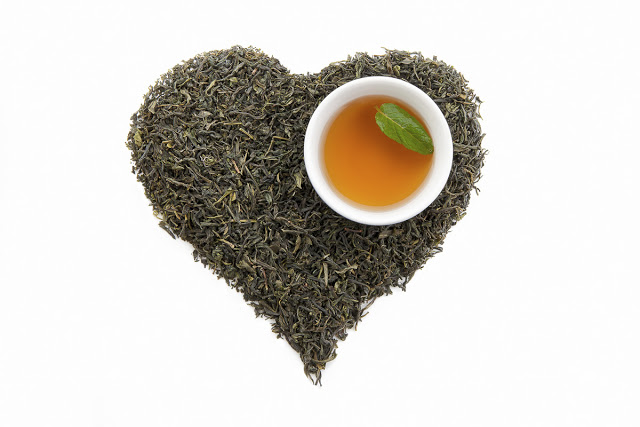
What makes a person healthy is dependent on a whole range of factors—the foods we ingest, our genetics, thoughts, lifestyle and habits.
Some constitutions are more or less sensitive to certain habits and influences. One of the keys to supporting radiant health is to identify and practice that which will foster benevolent cycles of health.
It is not rocket science to say that habits and routines create the outcomes and results that we experience in our lives. We can all agree that there is a difference between benevolent and malevolent habits on our overall well-being.
For example, do you wake up peaceful, harmonious, and excited to create your day? Or are you lethargic, in need of stimulants (such as coffee) and addicted to processed food? Do you notice a calm state or anxious thoughts? More often than not, what is the state of your mind? Often times it is not helpful to completely eradicate bad habits (lest we swing back into extreme) without first incorporating, integrating, and embracing new habits that bring us a sense of ease and build our inner resources.
Tonic herbs are one way to foster and aid benevolent health cycles. They do so by strengthening our overall chi. Our chi is our first line of defense again stress, pathogens, viruses, and other factors that may effect our health.
Ideally, our chi is nourished and we feel safe, protected, content, calm, and inspired to grow and be creative.
Replenishing our chi (body energy) and jing (spiritual energy) helps to build higher and higher levels of homeostasis in the body’s organ system. When our organ system is functioning optimally it will positively effect our psychological, mental and emotional experience.
When we have the resources of a peaceful, safe, and less stressed body system, our reserves of adaptive energy will allow us to take on more and more. We will experience a deeper level of replenishment—our sleep will be efficient and we will experience more mental clarity.
When our body is thriving we can be more creative and empowered. This level of health is what is needed to create positive changes away from disease. Disease in the body can be thought of as poverty consciousness in that we don’t have the resources we need to grow, perform and become.
Often times our malevolent habits are wrecking our health, from the sleepless nights to the coffee addiction. We may feel safe in these routines; they are predictable, familiar, and comfortable, but they are not creating a deeper sense of resilience in the body system. We get so use to these habits that hey become our “go-to”.
These thoughtless rituals begin to deplete our chi and sense of well-being over time. Our moods, cravings and thoughts become manic or out of balance. We are less about creating and more robotic in what we repeat to ourselves and others. This is a very different picture than when our chi, jing and adaptive energy are nourished and in balance. With nourished reserves of energy, we can offer more value and innovation to the world.
Here are a couple of tonic herbs to try out that will help build chi, shen and jing reserves:
1) Chaga, also known as the “Gift From the Gods” in Siberia, and “The Diamond in The Forrest” in Japan, is the East’s long held secret, and has been used in Chinese Medicine for thousands of years.
It has been touted for its anti-aging benefits, and is an herb traditionally used for longevity. It is an immune system-modulator, which basically means that instead of boosting the immune system (which can be contra-indicative for certain auto-immune diseases), it re-patterns it to work more efficiently, which helps fight viruses and bacteria. It is known to revitalize our chi, another word for life force energy.
It is a nutritional powerhouse, full of vitamins, minerals and enzymes, and is the worlds most abundant source of pantothenic acid on the planet. It contains calcium, magnesium, zinc and potassium. It is made up of 30 percent polysacchrides and has been shown to bring the body into proper balance. The taste is also nice—it contains vanilli, which give it a creamy vanilla tastes. It is also been shown to have anti-tumor properties.
2) Reishi, the most scientifically-researched herb on the planet.
It was first written about 2,000 years ago by the Chinese herbal text Shennong’s Pharmacopeia. It is a powerful and superior-class adaptogen, with immune-strengthening, stress-relieving, and liver protection properties. It is seen as the most potent shen tonic. It can improve circulation and protect against radiation, free-radicals and environmental stressors. It has been known to be an antioxidant, anti-inflammatory, anti-fatigue and anti-stress herb. In order to be considered a tonic herb, it needs to at least nourish one of the triple treasures, however, reishi nourishes all of three—jing, chi, and shen.
3) Gynostemma is most often served as a tea, and it has been known to nourish your heart.
It is known as an adaptogen, which basically means that it addresses the balance that the body needs. It is full of the triterpenoid saponin, called gypenosides, which is the same compound that gives red wine its cholesterol-lowering capability, and it the active ingredient in ginseng root.
It is an important herb to consider for balancing cholesterol, since it has been shown to raise HDL and lower LDL up to 85 percent when consumed regularly. It has been shown to make carbohydrates more available for muscle and energy levels—it uses the sugars before your body has a change to turn them into fat stores. It has been known to be safe and effective for weight-loss and raising the metabolism. It is rich in nitric oxide which can allow the blood vessels to relax and increases circulation. It has been shown to have adaptogenic qualities, immune-modulating components, stress-reducing constituents and supports the body to find its natural homeostasis.
For more information on these herbs, check out Hyperion Herbs.
Love elephant and want to go steady?
Sign up for our (curated) daily and weekly newsletters!
Apprentice Editor: Hannah Harris / Editor: Catherine Monkman
Photo: Pixoto










Read 1 comment and reply